Find Help
More Items From Ergsy search
-
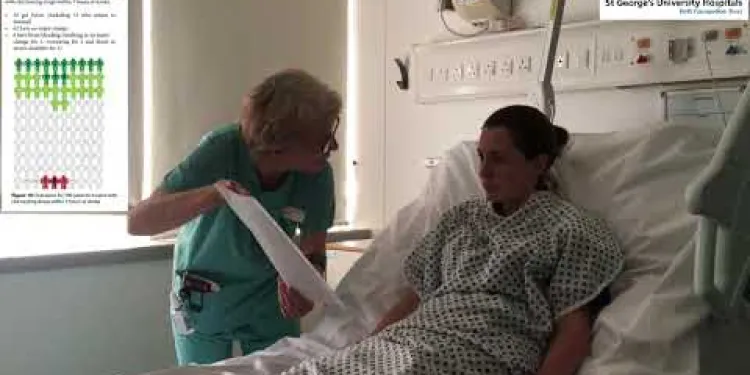
Gaining consent from stroke patients
Relevance: 100%
-

Assessing the stroke patient
Relevance: 63%
-

Do all patients need medication to prevent heart attacks and strokes?
Relevance: 50%
-

Vale Stroke Unit
Relevance: 48%
-

Are anticoagulants effective in reducing stroke risk?
Relevance: 45%
-

Are there any recent advancements in medications for stroke prevention?
Relevance: 42%
-
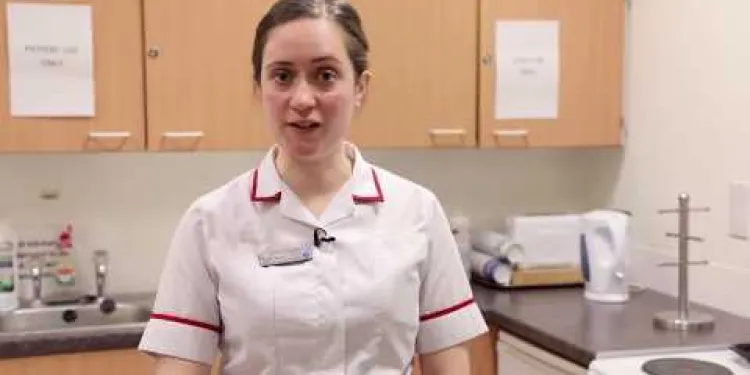
Stroke - Speech and Language Therapist's Experience
Relevance: 42%
-

NHS Here for You – Stroke
Relevance: 41%
-
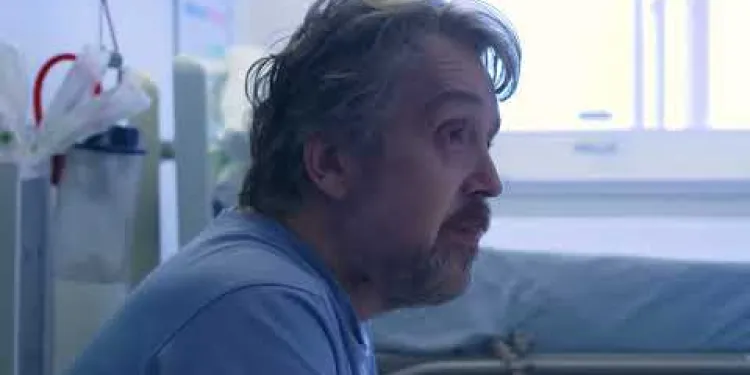
NHS Forth Valley’s Stroke Team
Relevance: 41%
-
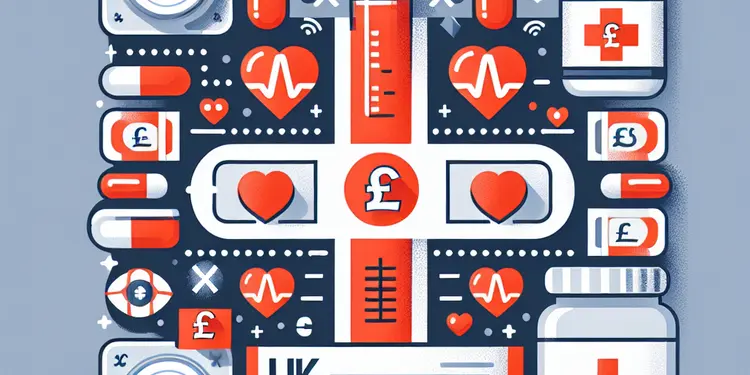
What role do ACE inhibitors play in stroke prevention?
Relevance: 41%
-

Can antihypertensive medications reduce stroke risk?
Relevance: 41%
-
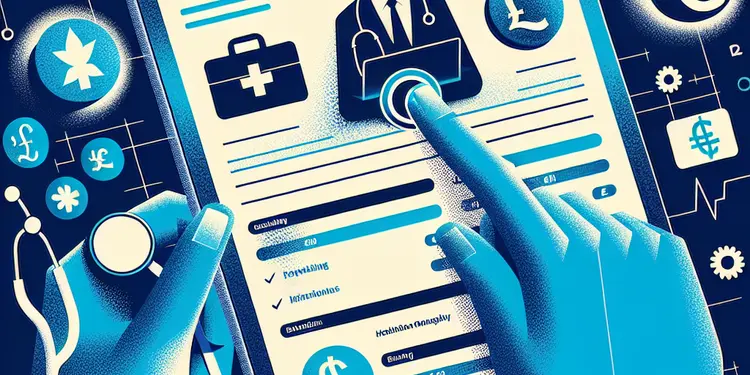
Can my employer access my medical records without my consent?
Relevance: 37%
-

What drugs can reduce the risk of heart-attack and strokes?
Relevance: 37%
-
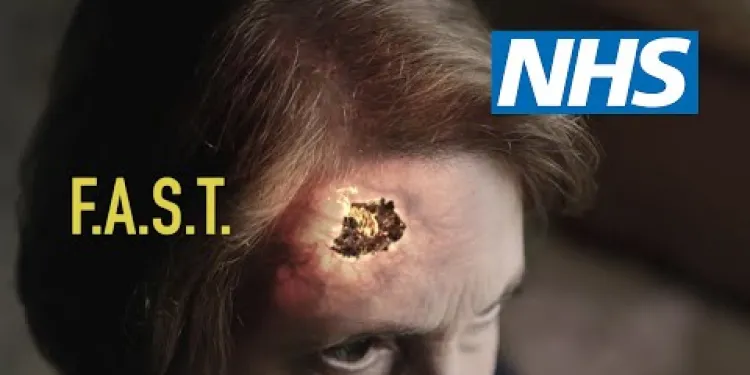
When Stroke Strikes Act F.A.S.T. | NHS
Relevance: 36%
-

Can aspirin help in reducing the risk of strokes?
Relevance: 36%
-

Can the police access my neighbour’s CCTV footage without consent?
Relevance: 35%
-

What is the role of lifestyle modification in heart attack and stroke prevention?
Relevance: 33%
-

What legal rights do I have as a medical patient in the EU?
Relevance: 32%
-
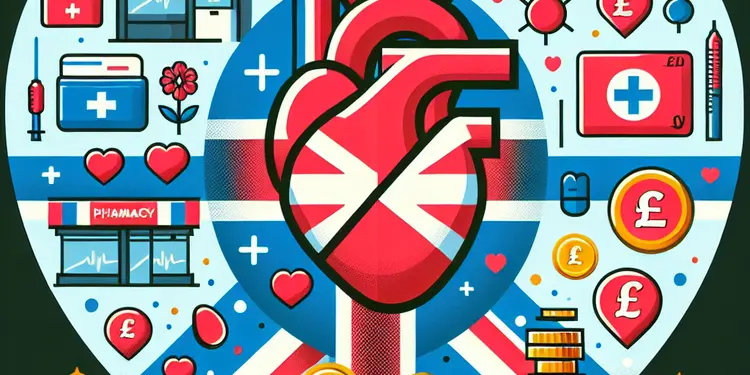
Do over-the-counter medications help in preventing heart attacks and strokes?
Relevance: 32%
-

Positioning for Breathless Patient
Relevance: 25%
-

Are virtual wards suitable for elderly patients?
Relevance: 24%
-
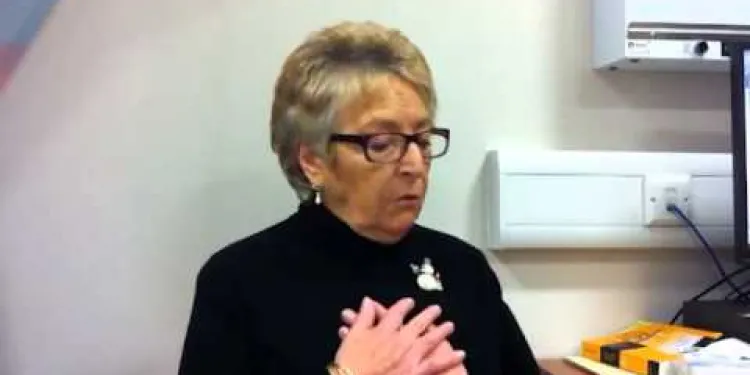
Neuroendocrine tumour patient video
Relevance: 23%
-

NHS Utilizes AI to Prioritize High-Risk Patients on Waiting Lists
Relevance: 23%
-
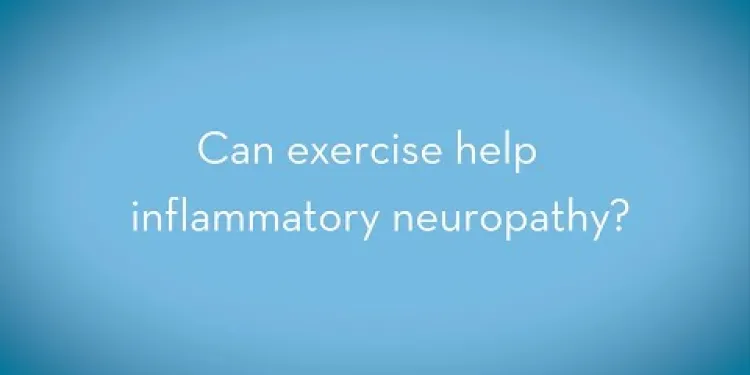
Exercise in patients with a neuropathy
Relevance: 22%
-

What legal resources are available for carers of Alzheimer's patients?
Relevance: 22%
-

What is self-testing for eye patients?
Relevance: 22%
-
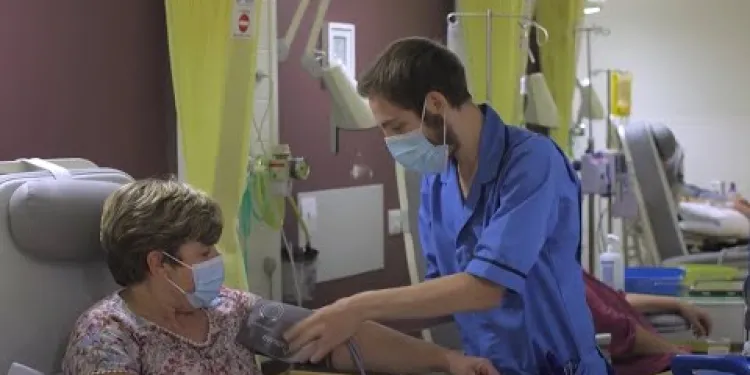
Chemotherapy - the patient journey
Relevance: 22%
-

Can technology aid in the care of Alzheimer's patients?
Relevance: 21%
-

How do virtual wards improve patient outcomes?
Relevance: 21%
-

Can Baxdrostat be used in patients with renal impairment?
Relevance: 21%
-
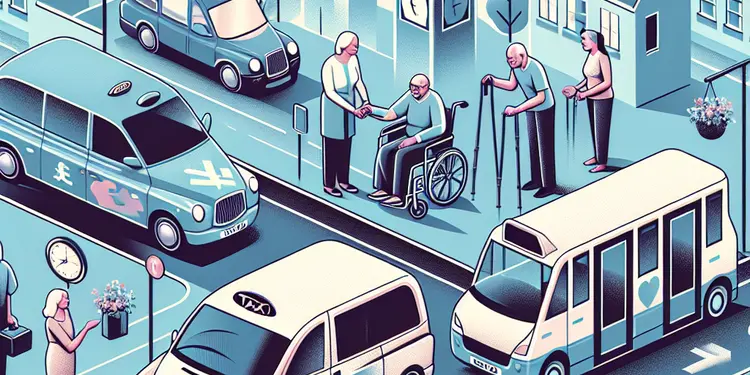
What transportation services are available for Alzheimer's patients and their carers?
Relevance: 21%
-

What types of exercise are beneficial for bowel cancer patients?
Relevance: 21%
-

What support is available for carers of Alzheimer's patients?
Relevance: 21%
-

Fallsafe - Put the patient first. Preventing falls in Hospital.
Relevance: 20%
-

Making a spinal brace for a scoliotic patient at the RNOH
Relevance: 20%
-
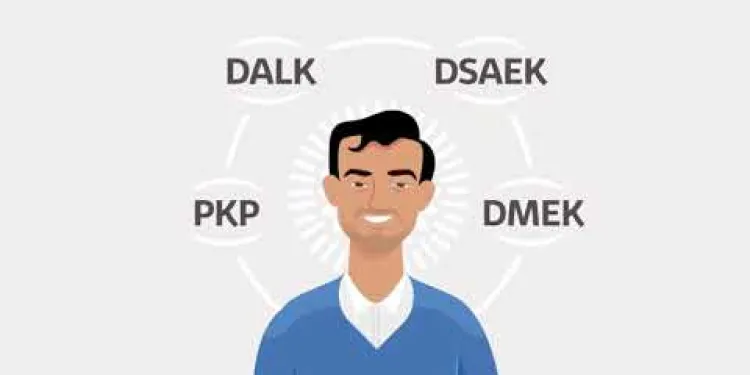
Cornea transplant patient Information
Relevance: 20%
-

Are there online support services for prostate cancer patients on the NHS?
Relevance: 20%
-

Infertility - IVF Treatment and Patient Information
Relevance: 20%
-

How the Shortage of GPs is Affecting Patient Care Across the UK
Relevance: 20%
-

Are there financial support programs for carers of Alzheimer's patients?
Relevance: 20%
Gaining Consent from Stroke Patients
Understanding Stroke and Its Impact
A stroke can significantly impact a patient's cognitive and communication abilities. In the United Kingdom, around 100,000 people suffer from strokes each year, resulting in a range of disabilities that can impair their decision-making capacity. Understanding the nature of a stroke and its effects on the brain is crucial for healthcare professionals when obtaining valid consent from patients. Cognitive impairments may include memory lapses, difficulty understanding language, and problems with executive functions.Legal and Ethical Considerations
In the UK, the Mental Capacity Act 2005 sets the legal framework for assessing a patient's capacity to consent. According to the Act, every adult should be presumed to have capacity unless proven otherwise. Healthcare professionals must sometimes conduct a formal assessment to ascertain whether a stroke patient can provide informed consent. The assessment should consider the patient's ability to understand, retain, and weigh the necessary information to make an informed decision and then communicate that decision.Effective Communication Strategies
Communication is a fundamental aspect of gaining informed consent. Stroke patients often face challenges with speech (dysarthria) or language comprehension (aphasia). It's essential to use clear, simple language and visual aids when explaining procedures or treatments. Allowing extra time for questions and encouraging the presence of family members or caregivers can also facilitate better understanding. Written materials, such as brochures or consent forms, should be provided in accessible formats.Involving Family and Caregivers
In certain cases, stroke patients may lack the capacity to make informed decisions independently. Under the Mental Capacity Act, a designated representative, such as a family member or caregiver, might be appointed to act in the patient's best interest. Proper documentation and clear communication with all parties involved are essential. Always involve family members or caregivers in the consent process to ensure that the patient's rights and wishes are respected as much as possible.Regular Reassessment of Capacity
A stroke patient’s capacity to consent can change over time, especially as they recover. It is crucial to regularly reassess their cognitive abilities and decision-making capacity. Healthcare professionals should remain vigilant and adaptable, providing continuous support to stroke patients. This reassessment ensures that consent remains valid and that decisions are made in the patient's best interest. By following these guidelines, healthcare providers in the UK can ensure that they gain informed consent from stroke patients ethically and legally, respecting their rights and dignity throughout their care journey.Gaining Permission from Stroke Patients
What is a Stroke and How It Affects People
A stroke happens when there is a problem in the brain. It can make it hard for a person to think and talk. In the UK, about 100,000 people have a stroke every year. This can cause different disabilities. It might be hard for them to make decisions. Doctors and nurses need to know how a stroke affects the brain to help the person agree to treatment. People might forget things, have trouble understanding words, or find it hard to plan and decide.Rules and Fairness
In the UK, there is a law called the Mental Capacity Act 2005. It helps check if a person can agree to things on their own. The law says we should think everyone can make decisions unless there's proof they cannot. Sometimes, doctors have to do a test to see if a stroke patient understands enough to agree. They look at if the person can understand, remember, and think about the facts. They also check if the person can tell others what they want.How to Talk Clearly
Talking is important for agreeing to treatment. People who had a stroke might find it hard to speak or listen. It’s important to use easy words and pictures to explain things. Give more time for questions, and let family members or helpers join the talk. Written things like leaflets or agreements should be easy to read and understand too.Involving Family and Helpers
Sometimes, people who had a stroke need help to decide. The law says a family member or helper may be chosen to decide for them. It's important to keep records and talk clearly with everyone involved. Always include family members or helpers to make sure the patient’s wishes are respected.Checking Again and Again
A person who had a stroke might get better with time. So, it’s important to check often if they can make decisions. Doctors and nurses should be careful and ready to help as needed. Checking again makes sure the decisions are still right and good for the patient. By following these steps, doctors and nurses in the UK can make sure they get permission from stroke patients the right way, respecting their wishes and needs during their care.Frequently Asked Questions
What is consent in the context of stroke patients?
Consent refers to the patient’s agreement to receive medical treatment or participate in a medical procedure, given voluntarily and with full understanding of the potential risks and benefits.
Why is gaining consent important for stroke patients?
Gaining consent is important to respect the patient's autonomy, ensure ethical practice, and comply with legal requirements.
Can stroke patients give consent immediately following a stroke?
It depends on the severity and the impact of the stroke on the patient's cognitive and communication abilities. A healthcare professional must assess the patient's capacity to give informed consent.
What happens if a stroke patient cannot give consent?
If a patient lacks the capacity to give consent, a legally appointed representative or a healthcare proxy should be consulted to make decisions on behalf of the patient.
How is a patient's capacity to consent assessed?
The assessment involves evaluating the patient’s ability to understand, retain, and weigh the information relevant to a specific decision and communicate their choice.
What is the role of a Mental Capacity Act (MCA) in stroke patient consents?
The MCA provides a legal framework in the UK for making decisions on behalf of individuals who lack the capacity to make decisions themselves, ensuring decisions are made in their best interests.
What should healthcare professionals explain to stroke patients when seeking consent?
Professionals should explain the nature, purpose, potential risks, benefits, and alternatives of the proposed treatment or procedure in a manner that the patient can understand.
Can consent be given verbally, or does it need to be written for stroke patients?
Consent can be verbal, written, or implied, but written consent is preferable for significant procedures to provide clear documentation.
What is informed consent?
Informed consent involves providing the patient with comprehensive information about the treatment or procedure, ensuring they understand it, and then obtaining their voluntary agreement to proceed.
What rights do stroke patients have regarding medical decisions?
Stroke patients have the right to make informed decisions about their treatment, refuse treatment, and have their wishes respected, even if they later lose capacity.
Are family members allowed to make decisions if the stroke patient cannot?
Family members can make decisions only if they hold a legal status, such as being a designated welfare attorney under a Lasting Power of Attorney (LPA) for health and welfare.
What should be done if the patient’s consent changes over time?
If a patient changes their consent, healthcare professionals must reassess the situation, respect the patient’s current wishes, and update the consent documentation accordingly.
How should healthcare professionals communicate with stroke patients who have aphasia?
Professionals should use simple language, visual aids, gestures, and allow more time for communication. Involving speech therapists can also help in facilitating effective communication.
What is a Best Interests decision?
A Best Interests decision is made on behalf of a patient who lacks capacity, considering all relevant factors, including the patient’s past and present wishes, feelings, and beliefs, and consulting with family members and other caregivers.
Can a stroke patient refuse treatment even if it could be life-saving?
Yes, if the patient has the capacity to make an informed decision, they have the right to refuse any treatment, including life-saving interventions. Their decision must be respected.
What does consent mean for people who have had a stroke?
Consent is when someone says "yes" to something. They agree to it.
For people who had a stroke, sometimes it is hard to understand things.
Doctors need to make sure that the person knows what they are saying "yes" to.
It's important they agree before anything is done, like tests or treatments.
Things that can help:
- Use simple words.
- Speak slowly and clearly.
- Use pictures to explain.
- Ask questions to make sure they understand.
- Use a trusted friend or family member for support.
Consent means saying yes to getting medical help or having a medical test. You should agree by yourself and know what might happen during and after the treatment. Always ask questions if you are not sure, and tell your doctor if you don’t want to do something. You can use pictures, videos, or talk to someone you trust to help understand better.
Why is getting permission important for stroke patients?
It is important to get permission before helping stroke patients. This means asking if it's okay to do something. It respects their choices and makes sure they are part of decisions about their care.
Here are some tips to help:
- Ask clear and simple questions.
- Use pictures or drawings to explain.
- Be patient and give them time to answer.
- Repeat if needed or ask in a different way.
It is important to ask for permission. This shows respect for the person's choices. It is also the right thing to do and it follows the law.
Here are some tools and tips that can help:
- Use simple words and short sentences.
- Ask the person if they understand.
- Use pictures or drawings to help explain.
- Be patient and give them time to think.
Can someone say yes or no after having a stroke?
After a stroke, it can be hard for some people to think or talk. A doctor or nurse needs to check if the person can understand and agree to things.
What if a stroke patient cannot say yes or no?
When someone has a stroke, they might not be able to say yes or no. This is called giving consent. Here are some things that can help:
- Family or Friends: People close to the person can help make decisions.
- Doctor: The doctor can decide what is best for the person.
- Power of Attorney: A special person chosen before to make decisions can help.
It is important to care for the stroke patient in the best way possible.
If a patient cannot give permission for medical care, a person who is chosen by law, called a representative or healthcare helper, should help make decisions for the patient.
How do doctors check if a patient can agree to treatment?
Doctors check if a patient can agree to treatment by asking questions. They make sure the patient:
- Understands the information about the treatment.
- Can remember the important facts.
- Can think about the information to make a decision.
- Can tell the doctor their decision.
Helpful tools and techniques include:
- Using simple words and pictures.
- Taking time to explain things slowly.
- Repeating information if needed.
- Asking family or friends for support.
The test checks how well the person can understand, remember, think about, and talk about a choice they need to make.
What does the Mental Capacity Act (MCA) do to help stroke patients make choices?
The Mental Capacity Act (MCA) is a law that helps people who might have trouble making choices, like stroke patients. It makes sure people are treated fairly.
Here is how the MCA helps:
- It checks if a person can make their own choices.
- If someone needs help, it guides how to support them.
- It says what to do if a person can't decide for themselves.
If a stroke patient has trouble deciding, the MCA will help by:
- Making sure someone speaks up for them.
- Ensuring all choices are in their best interest.
Helpful Tools:
- Pictures and simple words can help explain choices.
- Talking with family or friends can help understand what's best.
The MCA is a law in the UK. It helps people make decisions for others who cannot make decisions on their own. The law makes sure the decisions are good for them.
What should doctors and nurses tell stroke patients to get their permission?
Doctors and nurses need to talk clearly to stroke patients. It helps the patients understand what will happen. Here is what they should do:
- Use easy words, not difficult ones.
- Speak slowly and clearly.
- Explain why they need permission. This means asking if they can do something, like give medicine.
- Tell what will happen during treatment.
- Let the patient ask questions.
- Check if the patient understands. They can ask the patient to repeat back what they learned.
Doctors and nurses can also use pictures or videos. These can help patients understand better.
Doctors and nurses should talk to you about the treatment or procedure. They should tell you what it is, why you need it, what could go wrong, how it can help you, and other options you might have. They should explain it in a way that you can easily understand.
How do stroke patients give consent? Do they need to speak it or write it down?
Consent means saying "yes" to something. Stroke patients are people who have had a stroke. A stroke can make talking or writing hard.
Stroke patients can say "yes" with words. This is called giving consent verbally. They can also give consent by writing it down or by nodding their head to say "yes."
Some tools can help stroke patients communicate, like picture boards or speech devices. These can help them say what they want more easily.
Always make sure stroke patients understand what they are saying "yes" to. Help them with simple words and pictures if needed.
Consent means saying "yes" to something. You can say "yes" by talking, writing it down, or showing it in other ways. For important things, it is best to write it down so you have a record of it.
What is informed consent?
"Informed consent" means agreeing to something after you know all about it. Before you say "yes" to something important, people need to tell you what's going to happen. They should explain in a simple way so you understand. You can ask questions if you're not sure about anything.
If you need help, you can ask someone you trust to explain it to you. You can also use tools like pictures or videos to help understand better. Remember, you can always say "no" if you don't feel comfortable.
Informed consent is when a doctor gives a patient all the important information about a treatment or procedure. The patient needs to understand it, and then decide if they agree to go ahead.
Here are some ways to make this easier:
- Use simple words and short sentences.
- Ask questions if you don't understand something.
- Use pictures or videos to help explain.
- Take your time. There is no rush to decide.
- Bring a friend or family member to help listen and ask questions.
What choices can people who had a stroke make about their medical care?
If you had a stroke, you can make choices about your health care.
Your rights are important, which means you can say what you want.
Here are some things to remember:
- You can tell the doctor what you need or want. Explain how you feel.
- You can ask questions if you do not understand something.
- You can ask someone you trust to help you. This person can be a friend or family member.
- You can use pictures or videos to help understand medical words.
Always remember, it's okay to ask for help. Your choices and voice matter.
People who have had a stroke can make choices about their treatment. They can say "no" to treatment if they want. Others should respect what they decide, even if later they can't make choices for themselves.
Can family help make choices if the stroke patient cannot?
If someone has a stroke and cannot make choices, family can help. Here are some things that can help:
- Talk to doctors and nurses. They can explain what is happening.
- Use pictures or simple words to understand better.
- Ask if there is a power of attorney. This is a paper that says who can make choices for the person.
Family members can help make choices if they have a special role. They need to be named as a helper, like a welfare attorney, under a Lasting Power of Attorney (LPA) for health and welfare.
What if the patient changes their mind over time?
If the patient decides they want something different, it's important to listen and help them. Talk to them and make sure you understand what they want now.
Use pictures or simple words to explain things if that helps. Make sure they are happy with what’s happening. Ask someone they trust to help talk about it, if needed.
If a person changes their mind about their healthcare, doctors and nurses need to listen. They should respect what the person wants now and make sure the paperwork shows the new decision.
How can doctors and nurses talk to stroke patients with trouble speaking?
Doctors and nurses should follow these steps:
- Use simple words.
- Speak slowly and clearly.
- Ask yes or no questions.
- Show pictures or write things down to help.
Tools like picture cards or apps can help patients understand and communicate better.
Experts can talk using simple words and pictures. They can use hand signs and give more time to talk. Speech helpers can also make talking easier.
What is a Best Interests decision?
A Best Interests decision is when someone decides what is best for another person who may not be able to decide for themselves. This can happen if the person is unwell or has a disability.
When making a Best Interests decision, people should think about what the person would like and what is safe and good for them. It's important to include the person's family, friends, or carers in the decision.
Tools like pictures or simple words can help when talking about these decisions. People can also use apps or videos that explain things in easy ways.
A Best Interests decision is made for a person who cannot decide for themselves. It looks at everything important for them. It thinks about what the person wanted in the past and what they want now. It also talks to family and people who help take care of the person.
- **Simple Words:** Use short and easy words.
- **Read Aloud:** Use tools like smartphones or computers to read text out loud.
- **Ask for Help:** Talk to someone if it’s hard to understand.
Can a person who had a stroke say no to a treatment that might save their life?
Some people who have a stroke may not want treatment. They have the right to say no, even if the treatment could help them live.
If you or someone you know had a stroke, it's good to talk with a doctor about what to do. A doctor can help explain the choices and why they are important.
It's also helpful to have a family member or a friend to talk to. They can help you understand what's happening and what the doctor says.
There are tools that can make understanding easier, like pictures or videos. You can ask for help to use these tools if you need them.
Yes, if a patient can understand and make choices, they can say no to any treatment, even if it might save their life. We must respect their choice.
Useful Links
This website offers general information and is not a substitute for professional advice.
Always seek guidance from qualified professionals.
If you have any medical concerns or need urgent help, contact a healthcare professional or emergency services immediately.
Some of this content was generated with AI assistance. We’ve done our best to keep it accurate, helpful, and human-friendly.
- Ergsy carfully checks the information in the videos we provide here.
- Videos shown by Youtube after a video has completed, have NOT been reviewed by ERGSY.
- To view, click the arrow in centre of video.
- Most of the videos you find here will have subtitles and/or closed captions available.
- You may need to turn these on, and choose your preferred language.
- Go to the video you'd like to watch.
- If closed captions (CC) are available, settings will be visible on the bottom right of the video player.
- To turn on Captions, click settings .
- To turn off Captions, click settings again.
More Items From Ergsy search
-

Gaining consent from stroke patients
Relevance: 100%
-

Assessing the stroke patient
Relevance: 63%
-

Do all patients need medication to prevent heart attacks and strokes?
Relevance: 50%
-

Vale Stroke Unit
Relevance: 48%
-

Are anticoagulants effective in reducing stroke risk?
Relevance: 45%
-

Are there any recent advancements in medications for stroke prevention?
Relevance: 42%
-

Stroke - Speech and Language Therapist's Experience
Relevance: 42%
-

NHS Here for You – Stroke
Relevance: 41%
-

NHS Forth Valley’s Stroke Team
Relevance: 41%
-

What role do ACE inhibitors play in stroke prevention?
Relevance: 41%
-

Can antihypertensive medications reduce stroke risk?
Relevance: 41%
-

Can my employer access my medical records without my consent?
Relevance: 37%
-

What drugs can reduce the risk of heart-attack and strokes?
Relevance: 37%
-

When Stroke Strikes Act F.A.S.T. | NHS
Relevance: 36%
-

Can aspirin help in reducing the risk of strokes?
Relevance: 36%
-

Can the police access my neighbour’s CCTV footage without consent?
Relevance: 35%
-

What is the role of lifestyle modification in heart attack and stroke prevention?
Relevance: 33%
-

What legal rights do I have as a medical patient in the EU?
Relevance: 32%
-

Do over-the-counter medications help in preventing heart attacks and strokes?
Relevance: 32%
-

Positioning for Breathless Patient
Relevance: 25%
-

Are virtual wards suitable for elderly patients?
Relevance: 24%
-

Neuroendocrine tumour patient video
Relevance: 23%
-

NHS Utilizes AI to Prioritize High-Risk Patients on Waiting Lists
Relevance: 23%
-

Exercise in patients with a neuropathy
Relevance: 22%
-

What legal resources are available for carers of Alzheimer's patients?
Relevance: 22%
-

What is self-testing for eye patients?
Relevance: 22%
-

Chemotherapy - the patient journey
Relevance: 22%
-

Can technology aid in the care of Alzheimer's patients?
Relevance: 21%
-

How do virtual wards improve patient outcomes?
Relevance: 21%
-

Can Baxdrostat be used in patients with renal impairment?
Relevance: 21%
-

What transportation services are available for Alzheimer's patients and their carers?
Relevance: 21%
-

What types of exercise are beneficial for bowel cancer patients?
Relevance: 21%
-

What support is available for carers of Alzheimer's patients?
Relevance: 21%
-

Fallsafe - Put the patient first. Preventing falls in Hospital.
Relevance: 20%
-

Making a spinal brace for a scoliotic patient at the RNOH
Relevance: 20%
-

Cornea transplant patient Information
Relevance: 20%
-

Are there online support services for prostate cancer patients on the NHS?
Relevance: 20%
-

Infertility - IVF Treatment and Patient Information
Relevance: 20%
-

How the Shortage of GPs is Affecting Patient Care Across the UK
Relevance: 20%
-

Are there financial support programs for carers of Alzheimer's patients?
Relevance: 20%


